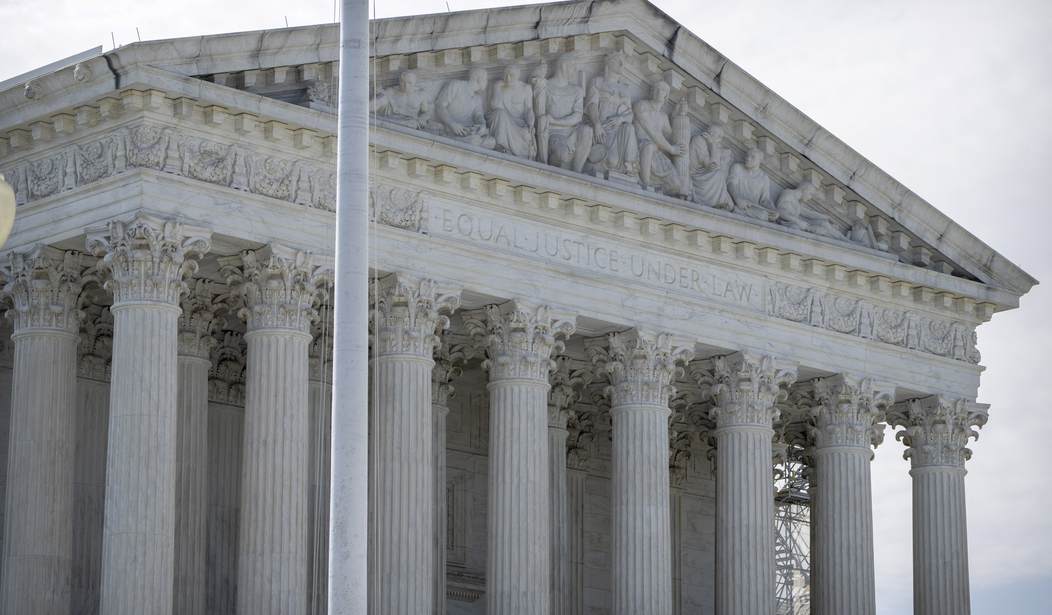On Thursday, an evenly divided Supreme Court (Justice Amy Coney Barrett was recused) upheld an Oklahoma Supreme Court decision that found the public funding of a religious charter school to be unconstitutional under the First Amendment.
An evenly divided Supreme Court on Thursday ruled against a religious school that sought public funding from the state of Oklahoma.
In a 4-4 vote, the justices upheld the Oklahoma State Supreme Court's decision that for St. Isidore of Seville Catholic Virtual School in Oklahoma City to receive public funds would be unconstitutional. Justice Amy Coney Barrett had recused herself from the case.
The court issued a one-sentence ruling upholding the lower court's decision, saying only: "The judgment is affirmed by an equally divided Court."
Oklahoma has argued that providing state funds for a religious charter school violates the First Amendment.
My colleague Streiff covered this case as it was being argued earlier in May:
The arguments seem to come down to the status of religious charter schools being treated as public schools and therefore de facto branches of government:
The justices focused on two questions during the oral arguments: First was whether charter schools should be treated as public schools, which are considered extensions of the state and therefore subject to the Establishment Cause and its ban establishing or endorsing a religion; or if the school should be considered a private entity or contractor, which was the argument made by St. Isidore.
The second question was whether Oklahoma’s actions violated the Free Exercise Clause of the Constitution, by placing what the school argues is an undue burden on its religious mission.
It would seem that, in the first argument, there would be a case to be made that as long as any religious sect was eligible for public funding, including, say, a Buddhist or Hindu school, then there is no issue with the First Amendment. It's unclear who the four judges were that voted to overturn the Oklahoma decision, so it's impossible to speculate as to what their reasons may be, but the principle of equal treatment would seem to apply; what the government does for anyone it must do for everyone or it must do for no one. The Court has, through this single-sentence ruling, affirmed the Oklahoma Supreme Court's determination that the answer is "no one."
You can view the Supreme Court's rather terse decision here. There is no indication as to how the eight justices voted.
Freedom of conscience is a founding principle of the republic, enshrined in the First Amendment, but as we see from this case (the decision, we should note, applies only to Oklahoma) there are thorny issues where public funding is concerned. But there's a silver lining behind this cloud: St. Isidore of Seville Catholic Virtual School, assuming they remain in operation without the public funding they sought, will also be free of government wire-pulling in their practices, their administration, and their curriculum. Under the Trump administration, that's one thing, but President Trump won't be in office forever, and sooner or later, another Democrat administration is likely to tie the public funding of these schools to all manner of woke horse squeeze.
For the time being, the issue is decided in Oklahoma. There are 49 other states. It's a safe bet that this won't be the last time this matter is litigated.
Editor’s Note: To celebrate the passage of the tremendous One Big, Beautiful Bill, we’re offering a fire sale on VIP memberships!
Join us in the fight against the radical left today and support our reporting as President Trump continues to usher in the Golden Age of America. Use promo code POTUS47 at checkout to get 74% off!















Join the conversation as a VIP Member